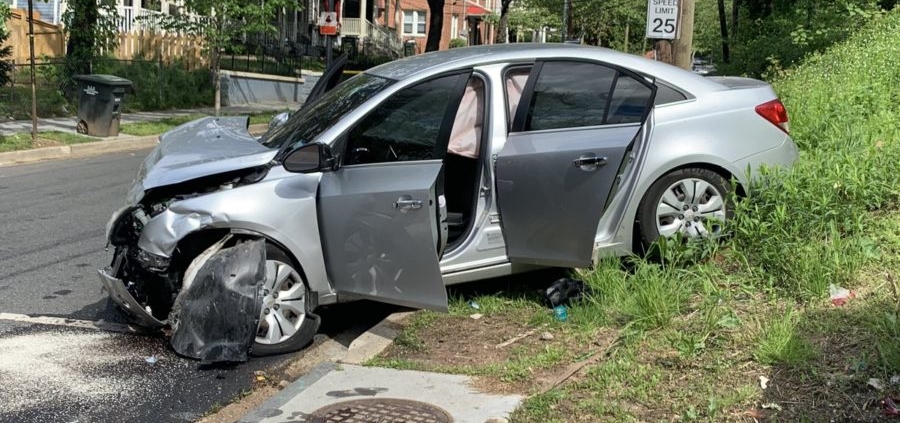Paying For More Than Legally Necessary Insurance
Question: I need to buy a car, and I can either buy an old one with bare minimum legally necessary insurance, or a newer one with more than the bare minimum. The reason why I would buy the newer one would be to avoid the inconvenience of breakdowns and expensive repairs. Am I allowed to buy the more expensive one and pay for more insurance?
Answer:
Wa alaykum assalam wa rahmatullahi wa barakatuh,
Dear questioner,
Thank you for your important question.
Short Answer:
If you are in a real fix, and buying an older car would put you at a general risk of wasting money and time on repairs, then it would be permissible to go with the newer car and pay the higher insurance premium.
Fuller Answer:
A call for judgment
The crux of your issue is in judging to what extent the older car would pose “clear and overwhelming hardship” as explained in the link below:
https://seekersguidance.org/answers/hanafi-fiqh/are-conventional-insurances-really-impermissible/
Life or death
Insurance is forbidden because of the open-ends of the contract (gharar), but clearly becomes halal when faced with immediate and unavoidable duress, such as when one’s life or property is immediately at risk. When the scholars allow such a contract, they are applying the principle ‘The forbidden becomes permissible due to duress (darura).’
What we see the scholars doing here with car insurance is pushing the standard a little further. They are applying another principle, namely ‘Difficulty (haja) shall be treated as duress (darura).’
If one didn’t have insurance one could not drive a car. This does not pose as an immediate and unavoidable threat to one’s life or property. Rather it poses a significant difficulty (haja) which in certain scenarios can be great enough to be treated as duress (darura).
The question here is whether or not we treat this as duress (darura), or mere convenience.
A Conflict of interests
Hafidh al Alai broke down how the Sacred Law deals with the conflict between general commercial need (haja), and the lack of clarity and open-mindedness of the contract (gharar) that would normally make the contract sinful and invalid.
He says that there are some contracts in which lack of clarity and open-mindedness are easily avoidable, such as buying things so far in advance that one couldn’t clearly define the item of sale, or selling goods that have been lost/stolen at a reduced price. While these contracts are useful to people, they are avoidable, so they remain sinful and invalid.
Another group of the contract is for which there is a high commercial need. In such contracts, lack of clarity is not easily avoidable, such as selling a house while never having inspected the foundations, or buying foodstuffs that can only be sold in a cover (e.g. eggs and pomegranates). Although the lack of clarity is there, it very hard to avoid and there is a great need to engage in such contracts, so they are allowed.
The third is somewhere in between. This is either because there is a great need for people to engage in such contracts, or that the lack of clarity and open-mindedness is minimal.
Open-ended contracts for which there is a great need would be something like profit-sharing ventures and renting/hiring in general. In principle, both of these contracts constitute spending money on services or returns that are not determinately known, so they should be forbidden. But they have been allowed because of the great difficulty of expecting everyone to own everything they need in their daily lives and businesses.
Contracts that lack clarity and open-mindedness are negligible and would be like buying fruits that are ripe but still on the tree, or selling with a right to cancel to a particular date (khiyar al shart). While in principle there is some level of vagueness, it is so light that it is overlooked.
This latter group of contracts is generally treated as the second and is also allowed (Al Majmu al Mudhhab fi Qawaid al Madhhab, Alai).
The question is which category does buying a new car with more insurance fall into.
Conclusion
Insurance is haram because it is an open-ended contract. Duress and some forms of hardship would allow it, but only to a minimum degree.
If buying an old car would cause “clear and overwhelming hardship”, then one could buy a newer car and go past the minimum degree by paying more than the minimum government-sanctioned insurance. If you are not sure, because you do not have much experience with old cars, ask a mechanic.
I pray this helps.
[Ustadh] Farid
Checked and Approved by Shaykh Faraz Rabbani
Ustadh Farid Dingle has completed extensive years of study in the sciences of the Arabic language and the various Islamic Sciences. During his studies, he also earned a CIFE Certificate in Islamic Finance. Over the years he has developed a masterful ability to craft lessons that help non-Arabic speakers gain a deep understanding of the language. He currently teaches courses in the Arabic Language
